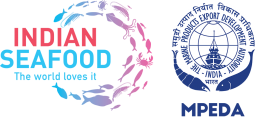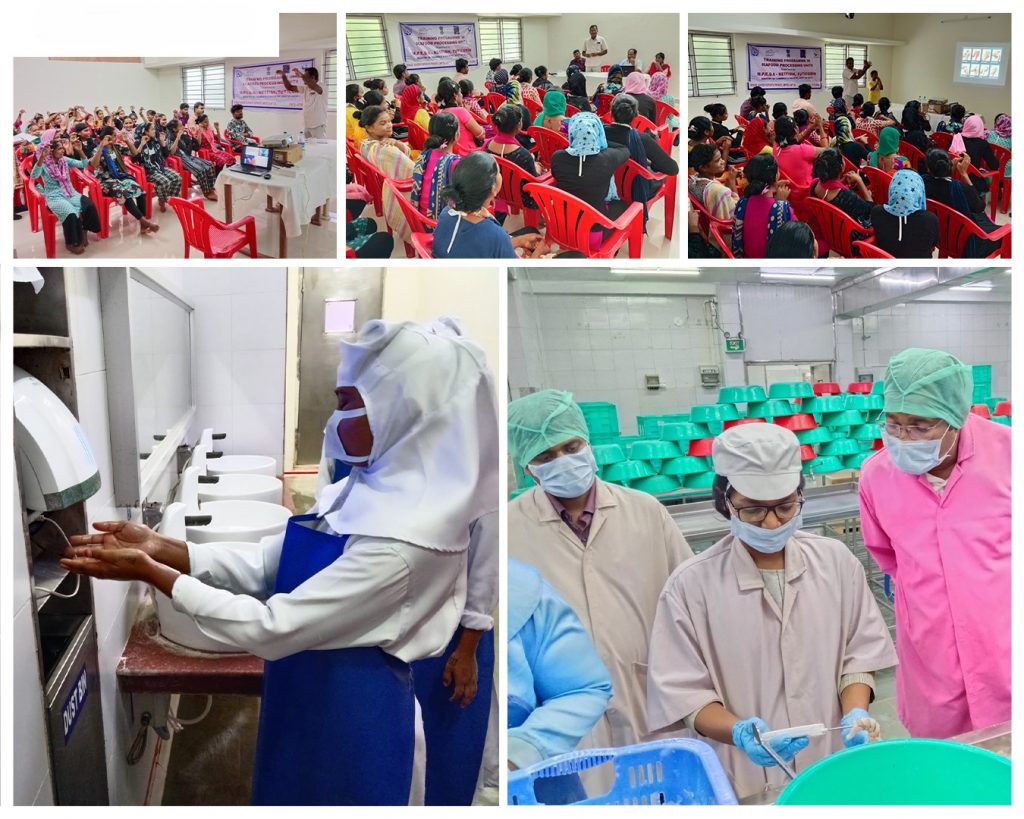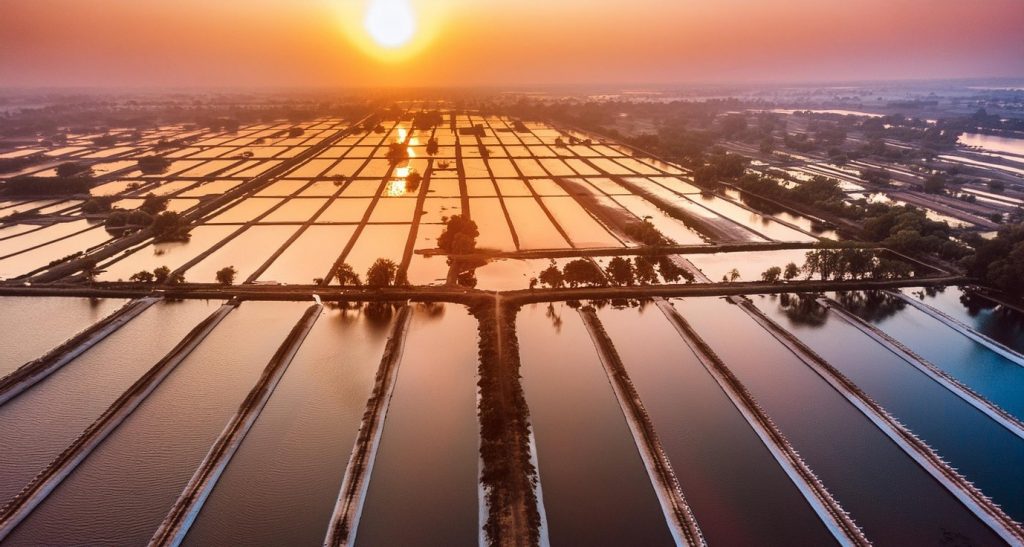India’s aquaculture sector has grown into a powerhouse, driven by innovation, sustainability, and knowledge sharing. At the heart of this transformation are three vital societies under the Marine Products Export Development Authority (MPEDA): the Rajiv Gandhi Centre for Aquaculture (RGCA), the Network for Fish Quality Management and Sustainable Fishing (NETFISH), and the National Centre for Sustainable Aquaculture (NaCSA). Together, these organisations are dedicated to improving seafood production, ensuring sustainable practices, and enhancing the livelihoods of those involved in the sector. Here’s how they are making a difference.
Rajiv Gandhi Centre for Aquaculture (RGCA): Innovating Aquaculture Technologies
As the research and development arm of MPEDA, RGCA is pivotal in advancing India’s aquaculture by introducing and refining culture technologies. Established with a no-profit, no-loss motto, RGCA has made significant strides in not only shrimp farming but also in the cultivation of diversified species such as seabass, cobia, pompano, tilapia, groupers, and mud crab. These species hold the potential to revolutionise India’s seafood export market, moving beyond the traditional shrimp-centric approach.
RGCA has undertaken several landmark projects, including:
– Pilot-scale Marine Finfish Hatchery Project at Vizhinjam, Kerala
– Grouper Hatchery Project at Andaman and Nicobar Islands
– Seabass and Mud Crab Hatchery Projects in Tamil Nadu
These projects aim to promote a diversified species culture, enabling India to expand its export base and contribute significantly to global seafood markets with high-value finfish and shellfish species. This diversification helps reduce the risk of over-dependence on shrimp exports and creates more resilient and sustainable aquaculture practices.
NETFISH: Safeguarding Fish Quality and Sustainability
The Network for Fish Quality Management and Sustainable Fishing (NETFISH) was formed in 2006 under MPEDA to enhance the quality of fishery products while promoting sustainable fishing practices. This society plays a critical role in educating fishers, fish handling workers, and other stakeholders about fish quality management, conservation, and responsible fishing.
NETFISH operates in nine maritime states of India through its state coordinators, conducting capacity-building programs that span:
– Fishing vessel-based programs to improve hygiene and fish handling practices
– Fish harbour-based initiatives for responsible fishing and quality preservation
– Skill development programs on advanced topics such as sea safety, square mesh fabrication, and value addition of fishery products
Through its massive outreach, NETFISH has conducted over 34,000 programs, benefiting nearly one million fishers and stakeholders. Their efforts have led to reduced post-harvest losses, improved hygienic handling, and the establishment of responsible practices that ensure the long-term availability of fish resources.
NETFISH has also been at the forefront of marine conservation, collecting data on marine mammals and sea turtles, and contributing to the protection of marine ecosystems. They have pioneered initiatives like the DROP (Drive to Recover Ocean Plastic) project, emphasizing the eradication of marine plastic waste in collaboration with fishing communities.
NaCSA: Supporting Small-Scale Shrimp Farmers
The National Centre for Sustainable Aquaculture (NaCSA) was established in 2007 to uplift small-scale shrimp farmers, who make up over 90% of India’s shrimp farming community. NaCSA empowers these farmers by organizing them into societies and promoting the adoption of Better Management Practices (BMP) for sustainable and disease-free shrimp farming.
By encouraging a cluster approach—where neighbouring farmers synchronise their operations—NaCSA has helped reduce production costs, improve disease management, and foster greater social and environmental responsibility. This method enables farmers to:
– Share resources and infrastructure like water systems and effluent discharge
– Align their production cycles, such as seed stocking and harvesting
– Ensure food safety and better market access through collective bargaining
NaCSA’s efforts have led to the formation of 948 societies across India, comprising over 20,000 farmers and covering a culture area of nearly 18,500 hectares. These societies not only provide technical support and market linkages but also ensure farmers’ access to institutional finance and subsidies, boosting confidence in shrimp farming.
NaCSA has also played a vital role in helping farmers obtain necessary licenses from the Coastal Aquaculture Authority (CAA) and enrolling them in MPEDA’s farm schemes. Their impact extends beyond aquaculture, as these societies contribute to local community development by interacting with district administrations and providing donations for social causes.
A United Front for Aquaculture Development
RGCA, NETFISH, and NaCSA, with their focused missions, are shaping the future of India’s aquaculture. Whether it’s innovating with new species, ensuring sustainable fishing practices, or uplifting small-scale farmers, these MPEDA-led societies are making remarkable strides. By combining modern research, capacity-building programs, and sustainable practices, India’s aquaculture sector is well on its way to achieving long-term success and expanding its presence on the global stage.


